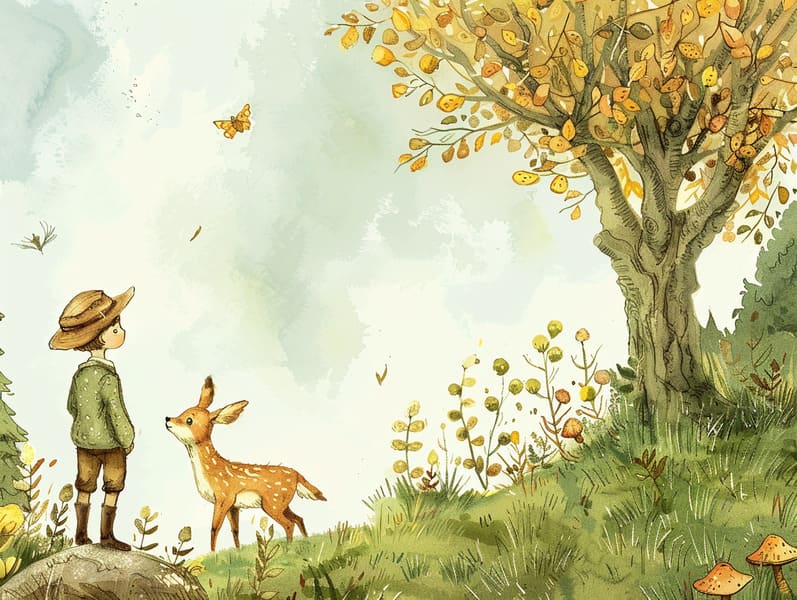Exploring the Wonder of Evening Narratives: Developing Treasured Memories with Kids
Exploring the Wonder of Evening Narratives: Developing Treasured Memories with Kids
Blog Article

Evening is a cherished time for moms and dads with their little ones. It’s a opportunity to unwind, nestle in, and experience the beauty of stories.
For decades, nightly tales for children have been a beloved ritual, offering more than just a way to drift off. They provide an moment for affection, development, and sparking imagination.
The Meaning of Bedtime Stories
Children's bedtime stories are not just a way to close the day. They play a key role in a child’s growth and in enhancing the parent-kid relationship. Here’s why they are valuable:
1. Bonding Time: Sharing bedtime stories creates a special period of closeness between families. It’s a moment of closeness that helps children feel secure and comforted.
2. Language Development: Absorbing tales helps children develop their language skills. They learn new phrases, understand syntax, and boost their listening and interpretative skills abilities.
3. Fantasy and Imagination: Kids' stories move them to enchanted worlds, promoting inventiveness. They dream of characters, settings, and adventures, which powers their fantasy.
4. Feeling Recognition: Bedtime narratives often showcase characters facing issues and sentiments. These narratives help kids interpret and work through their own emotions, enhancing emotional intelligence.
5. Cognitive Skills: Listening to a tale helps children develop mental engagement, recall, and critical thinking skills. They pick up to follow lines of thought, remember components, and deduce results.
Integrating Stories into Night Routine
Building a nightly ritual that incorporates sharing tales is simple and satisfying. Here’s how to turn it into a beloved part of your end-of-day routine:
1. Pick a Snuggly Spot: Choose a peaceful place where you and your child can relax without interruptions. A comfortable bed or a snug reading nook works beautifully.
2. Choose a Specific Time: Establish a specific time each night for tales. Routine helps children be prepared and makes the practice more sustainable.
3. Pick Stories for Their Age: Find tales that are appropriate for your child’s understanding. Young kids might like simple books with basic stories, while bigger children may appreciate longer stories with more involved stories.
4. Engage with the Story: Make the tale feel vivid by adding different voices for characters, adding noises, and inviting your child to engage. Ask questions about the story to hold their attention.
5. Create a Calm Atmosphere: Softly light the lights, use whispers, and create a relaxing environment to help your child get ready for sleep.
Discovering Top Bedtime Stories
There are endless options where you can find excellent bedtime stories for children. Here are some suggestions to explore:
1. Kids’ Literature: Look at your community library or bookstore to find a large selection of bedtime stories for kids. Exploring the aisles together can be a entertaining activity that also allows children to decide on stories that they enjoy.
2. Web Resources: There are many places online that offer free bedtime stories. Sites like Storyberries provide a variety of short stories for kids that you can read online. These sites are great for finding new and assorted stories without cost.
3. Audio Stories and Apps: For nights when you’re too exhausted to read, think about audiobooks or storytelling apps. These can provide a soft-spoken reading to read your child a story, ensuring they still get their bedtime story fix. Apps often offer engaging components that can involve them further.
4. Personalized Stories: Compose your own stories reflecting your child’s likes. Personalized stories can be especially engaging and meaningful. You can get your child in the narration process, making them a part of the adventure.
Positive Sides of Short Stories
Concise stories for kids are especially great for bedtime. They provide all the plusses of longer stories but are more to the point, making them perfect website for getting ready for bed before sleep. Here’s why short stories are a excellent choice:
1. Simple and Clear: Short stories are direct and easy for kids to get, even after a long day. They can promptly grasp the plot and enjoy the story without getting bored.
2. Immediate Interest: These stories readily engage children, seizing their involvement and creativity. This makes them wonderful for keeping bedtime customs efficient yet enjoyable.
3. Variety and Flexibility: Short stories give for variety in your bedtime reading. You can get a different story each night, keeping the practice engaging and exciting for your child.
4. Saves Time: For busy parents, brief tales are a efficient way to guarantee children still get their nightly dose of storytelling. They fit well into a packed schedule while still offering the full good points of a bedtime story.
The Pleasure of "Read Me a Story"
The simple phrase, “Read me a book,” can reveal a world of magic for children. Complying to this request not only fulfills a child’s want for attention and engagement but also forms lasting times. Here’s why it’s amazing:
1. Connection: Narrating to your child builds a deep emotional tie. It’s a time for togetherness, sharing, and bonding.
2. Legacy: Forming a bedtime story practice creates a treasured tradition that children expect every night. It’s a ritual that can be transferred through generations.
3. Shared Learning: As you tell stories, you’ll watch your child’s progress and development. Their engagement, reactions, and understanding of the stories evolve, offering insights into their developing minds.
4. Safe Environment: Bedtime stories provide a safe space for children to explore emotions, face fears, and find comfort in the known presence of a parent.
To Finish
Bedtime stories for kids are a powerful tool for nurturing a child’s progress and forming unforgettable events of bonding.